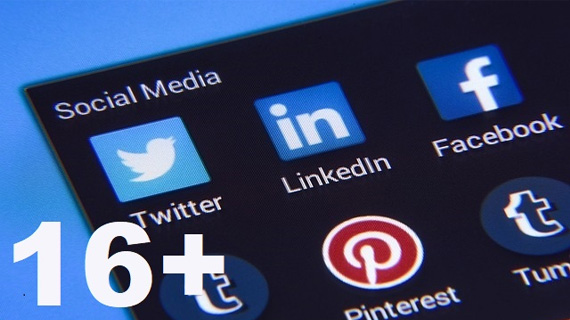Social media at 16: Five common narratives that have left me bewildered
CMA’s Vice President, Professor Wayne Warburton, School of Psychological Sciences, Macquarie University, was happy to see the passing of the bill which raised access to social media from 13 years to 16 years and is hopeful that there will be fine tuning of the legislation over time. However he was left feeling bewildered by some of the loud voices speaking against it, while others made him angry. Here he gives the reasons for the way he felt about the negative commentary.
Well, the legislation has passed. The first of its type and world leading – the age for access to popular types of social media will be raised from 13 to 16. I for one am happy to see this bill pass – over recent years the scientific research has converged to find social media has a number of potential harms, some very serious. However, I would have liked to see two further aspects to the legislation:
- Making social media companies responsible for making their products safer, including the addictive aspects;
- Catching within the legislation YouTube, Youtube Shorts and messaging apps like WhatsApp, that can act as social media proxies or be modified to have similar characteristics to other popular social media apps, and can also be addictive.
Hopefully there is room for fine tuning the legislation over time.
Along the way there has been a polarised debate with many loud voices speaking strongly against the proposal. Some of the arguments have left me feeling bewildered. Some have also made me angry. Here are five at the top of my list.
- “This legislation goes against the advice of the experts, who all agree changing the age of access is a bad idea”. I have heard this repeated ad nauseum, and as an academic with some expertise in the field, this just makes me angry. I chair a group called the Australian Gaming and Screens Alliance (AGASA), a group of leading clinicians and academics in the field of screen-based disorders, and AGASA supports a change of age. In fact, the vast majority of scientists I work with, both in Australia and overseas, agree that increasing the age, alongside requiring big tech to make their products safe, is the best way forward. I also note here that many ‘expert’ voices heard in the debate are people who are very well known, but who actually have little or no specific expertise or scientific background in the area.
- This is a ‘ban’. Politicians and commentators love two words that can be punishing to an opponent with a differing view – suggesting that a proposal is a ‘tax’ or a ‘ban’. They know that both concepts are unpopular with Australians, and in this debate opponents were quick to call this legislation a ‘ban’. Strangely, under the age of sixteen, Australian young people cannot buy metal knives, and need to wait until they are 18 to buy spray paint, access Restricted R18+ media, gamble or buy alcohol, tobacco or vapes, but nobody calls these age restrictions a ban. Rather they reflect society’s concern that some products can be harmful or misused when someone has not reached an adult level of maturity and may thus be more vulnerable to harmful effects.
- “Without social media teenagers will no longer be able to communicate with each other”. What? Without social media teens will still have more ways to communicate than at almost any time in history: Through video chats (Zoom, FaceTime, Skype and others), online blogs and chat rooms, email, text message, phone, gaming platforms and many more.
- “This legislation will mean teens lose access to mental health services”. If you look at how teenagers can access mental health services, there will still be numerous, simple (and safe!) ways to do so: via online websites including through telehealth, web-based services, chats, and webforms, via phone, via email, and via text message services, to name just a few. Reputable services are well known in Australia, and are much safer than some dodgy sites (such as some suicide-focused or body-image focused sites) that are accessed via social media.
- “Teenagers need social media and their worlds will fall apart without it”. Really? At the beginning of this year, when the NSW government decided to disallow phone use at their schools during school hours, there was a huge outcry, much of it from the same people loudly opposing the social media legislation. However, nobody talks about it now. Why? Because on every measure it was a success. For example, school surveys have found it improved student learning and concentration, and encouraged young people to socialise more. The truth is that teenagers are resilient, far more resilient than critics give them credit for. When phones were put away at NSW schools there were a few weeks of grumbling and then teenagers just adapted and found other ways to communicate, play and relate. In my view the same will happen when the minimum age for social media use is raised to 16.





0 Comments